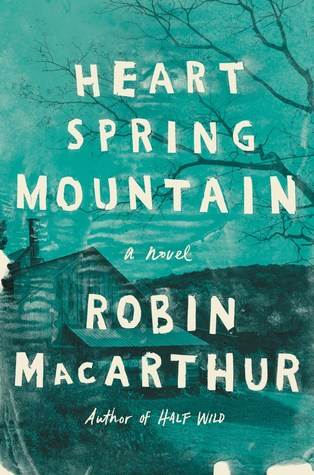
Heart Spring Mountain
A Novel
کتاب های مرتبط
- اطلاعات
- نقد و بررسی
- دیدگاه کاربران
نقد و بررسی

August 1, 2017
Winner of the PEN New England Book Award for Fiction, MacArthur's Half Wild offered polished stories about women from the backwoods who want up and out. Her debut novel draws on the same milieu, featuring New Orleans-based Vale, who heads home to Vermont in August 2011 after Tropical Storm Irene devastates the state. Her long-estranged mother has been reported missing, and trying to find her leads Vale to a secret about her family's origins as she wends her way through three generations of hang-tough women. Half Wild is a personal favorite; with a 30,000-copy first printing.
Copyright 2017 Library Journal, LLC Used with permission.

Starred review from October 30, 2017
Three generations of women seek comfort and closure in storm-wracked Vermont in this tender debut novel by MacArthur (after the story collection Half Wild). When heroin addict and mother Bonnie goes missing during 2011’s Tropical Storm Irene, her daughter, Vale, leaves a bartending job in New Orleans to return to the small town of her birth and find her. Still living on the family’s mountain are Bonnie’s nonagenarian aunt and once-guardian, Hazel, and widowed cousin-in-law, Deb. Although Vale’s return is welcome, it churns up their own resentments about living such an isolated existence. The novel is told from each of their perspectives: Vale digs for family lore before it is lost to the passage of time and death, Deb confronts tragedies of the past and present, and Hazel spirals through long-hidden memories. Secondary characters are just as strong as the narrators: Bonnie’s mother, who treasured her cabin in the woods; Deb’s husband, whose silence made him complicit in tragedy; and Bonnie, who relishes the hurricane’s wrath from a perch on a bridge. The resulting narrative is nuanced, poetic, and evocative; MacArthur empathetically depicts each of her characters in their wounded but hopeful glory.

November 1, 2017
A woman returning to her native Vermont to locate her missing mother uncovers a submerged family history.The debut novel by MacArthur (Half Wild: Stories, 2016) opens in 2011, as the remnants of Hurricane Irene besiege a rural Vermont town. Bonnie, a heroin addict, has disappeared during the flooding, prompting her daughter, Vale, to leave New Orleans, where she makes ends meet tending bar and stripping, to help find her. With few trails to follow, though, she mainly spends the ensuing months reconnecting with her extended family and locals, particularly her great-aunt Hazel, whose grip on reality is slipping, and her aunt Deb, a one-time commune dweller who still proudly adheres to a back-to-the-land lifestyle. (The novel's cultural touchstones are feminist and activist icons like Henry David Thoreau, Grace Paley, Frantz Fanon, and Patti Smith.) MacArthur alternates narrators, shifting not just from Vale to Hazel to Deb, but to notebooks written by Vale's proto-hippie maternal grandmother, Lena, giving the narrative a lyrical, earth-mother vibe. As Vale chats up family, reads the notebooks, and pulls up archives to seek evidence of her Native American heritage, MacArthur's theme is clear: the various ways women struggle to get past abuse and disrespect. (Vale's discovery of an infidelity in the past adds another layer of complication.) The family tree can get tangled, a love-interest subplot delivers little heat, and the story is occasionally pockmarked with only-in-a-novel dialogue and actions ("Find me!" Vale cries after flinging her clothes off in a rainstorm). But MacArthur ably sustains multiple narrative threads and voices while sympathetically exploring more than four generations' worth of hard times. And though the story is somber, there's enough room in the narrative for a sliver of optimism. As Deb tells Vale, "No radical change comes during good times."A fecund and contemplative feminist family saga.
COPYRIGHT(2017) Kirkus Reviews, ALL RIGHTS RESERVED.

























دیدگاه کاربران